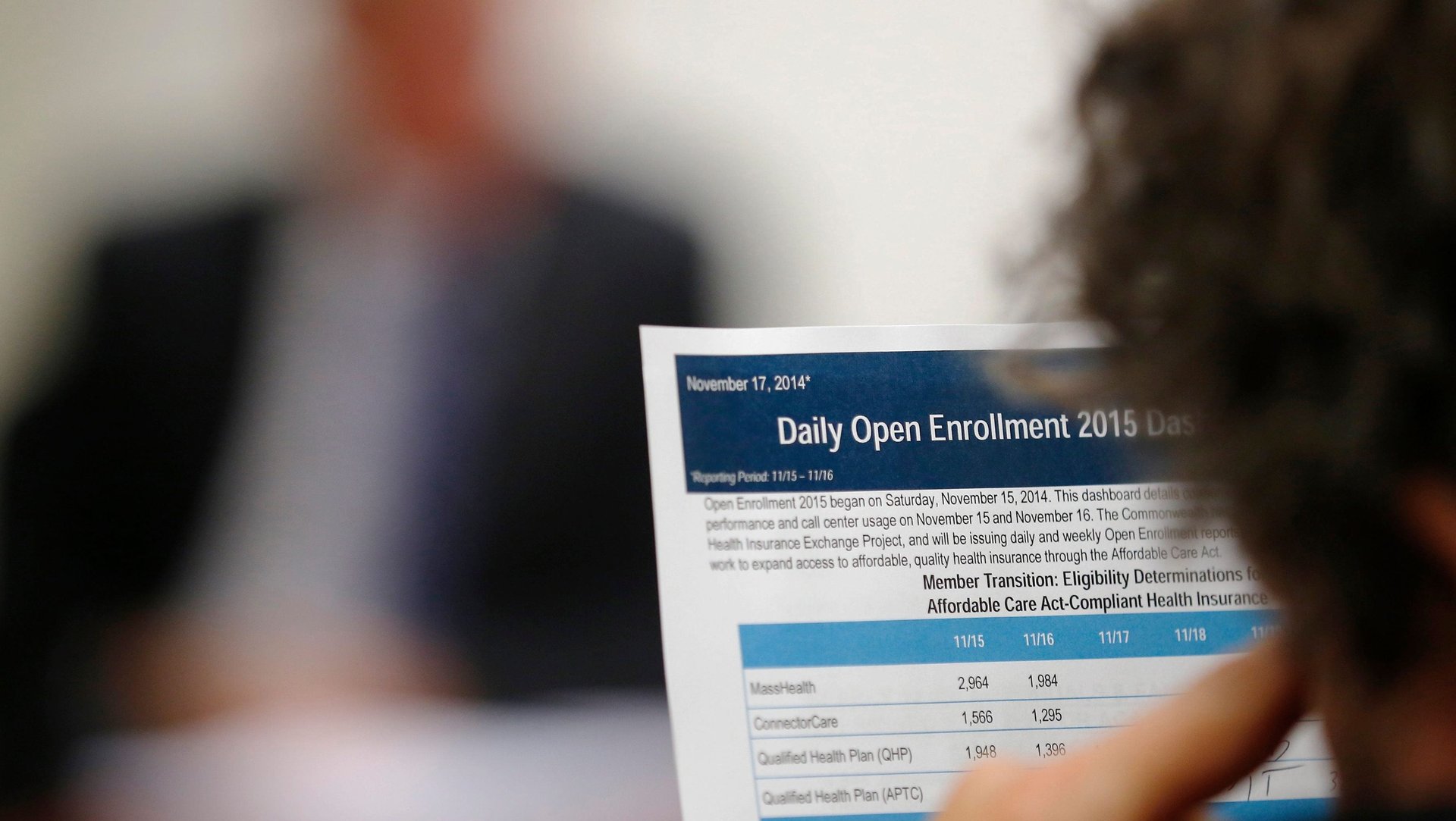The Health Savings Account (HSA) explainer you never knew you needed
It’s open-enrollment season in the US, which means millions of Americans are right now asking themselves the same question: What is an HSA? And should I get one?


It’s open-enrollment season in the US, which means millions of Americans are right now asking themselves the same question: What is an HSA? And should I get one?
Choosing a health care plan is one of the most complex decisions we make each year, and whether to open a health-dedicated savings account—and if so, which kind—a particularly confusing piece of the puzzle. Here’s everything you need to know about the plan that House speaker Paul Ryan calls “critical for helping Americans save and spend their health care dollars more wisely.”
What is an HSA?
A Health Savings Account (HSA) is an option offered along side some high-deductible health-insurance plans. As with a 401(k), you contribute pre-tax earnings to an account, except here the money can be used at any time for health expenses. Individuals can contribute up to $3,450 annually, and families can contribute up to $6,900. Unused funds roll over each year, and can even be used for health care costs in retirement. If you take the money out before age 65 for expenses unrelated to health, you’ll pay a 20% penalty.
While high-deductible plans typically cover routine doctor visits, you and your employer pay smaller premiums each month in exchange for covering more costs upfront. Imagine, for example, that your deductible is $2,000. If you break your leg—let’s say your medical bill is $8,000—then you’ll pay the $2,000 yourself, and the insurer will pay $6,000. If your high-deductible plan includes an HSA, you can have your share of that money set aside in advance.
About two-thirds of employers also make a fixed contribution to HSAs on behalf of their employees. Suppose your employer contributes $1,000 to your HSA and your deductible is $2,000. That same broken leg will now run you $1,000 out of pocket. (And if you don’t have many health expenses, that employer contribution is yours to keep.)
HSAs are a minuscule step towards making health insurance in America more like insurance. In most markets, insurance involves a third party paying you if an unexpected event occurs—like breaking your leg because you got hit by a bus. Health insurance in the US operates differently: It pays for predictable and unpredictable expenses. Economists argue that this approach disconnects health care from cost, and that’s one reason health care is so expensive. HSAs were expected to make customers more cost-aware, though evidence suggests they haven’t.
So is an HSA right for me?
If you expect lots of health expenses or can’t save money, probably not.
Between the lower premiums and your employer’s HSA contributions, odds are you’d save about $1,000 a year with an HSA. But there is still some risk. If you do get hit by a bus—or run into any pricey medical needs—you’ll have to pay health expenses up to the deductible. If you plan to mainly visit in-network doctors, have a lot of prescriptions, or are a high-risk person because of chronic illness, a dangerous lifestyle, or accident-prone children, an HSA probably isn’t right for you.
HSAs work best for people who have savings (in case they need to pay bills) and contribute to the account to take full advantage of its tax savings. If you have minimal outside savings, can’t afford to contribute much, and use lots of health care, you may be better off with a low-deductible health plan.
If you might leave your job or have certain kinds of health expenses, probably!
If you have more typical health-care needs, or lots of out-of-pocket medical expenses, an HSA/high-deductible plan is the better option. There aren’t many restrictions on how the HSA money is used, so long as it’s health-related. You can use the money to pay out of pocket for out-of-network doctors, prescriptions, fertility treatments, or counseling. HSAs are also a good hedge for job loss: HSA money (including those employer contributions) can be used to pay COBRA premiums. Without an HSA, you’d need to pay (higher) premiums with your own post-tax dollars.
Finally, if HSAs are often good, Flexible Spending Accounts (FSAs) are often bad. HSAs come with a high-deductible health plan, and the money accrues in your account until you spend it, even into retirement. While money in FSAs is also pre-tax and can be paired with low- or high-deductible insurance plans, it must be spent within a year or it disappears.
Nonetheless, HSAs remain an economic puzzle. Most people would end up better off, financially, with an HSA/high-deductible plan, yet a majority of Americans opt for the low-deductible, high-premium plan when given a choice. It could be we’re risk-averse when it comes to health, or just skeptical of any changes to our healthcare.